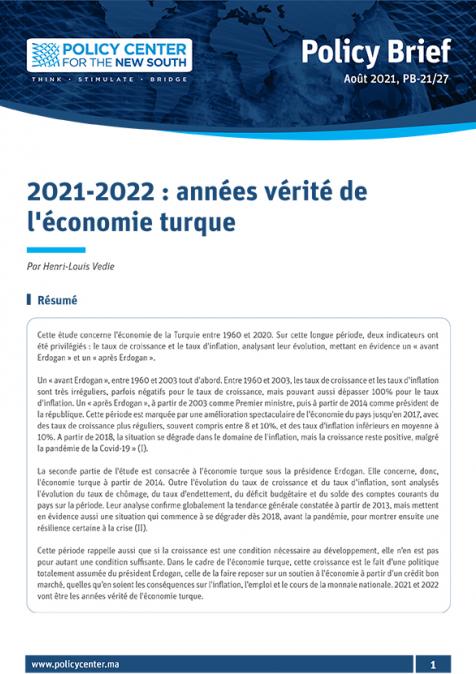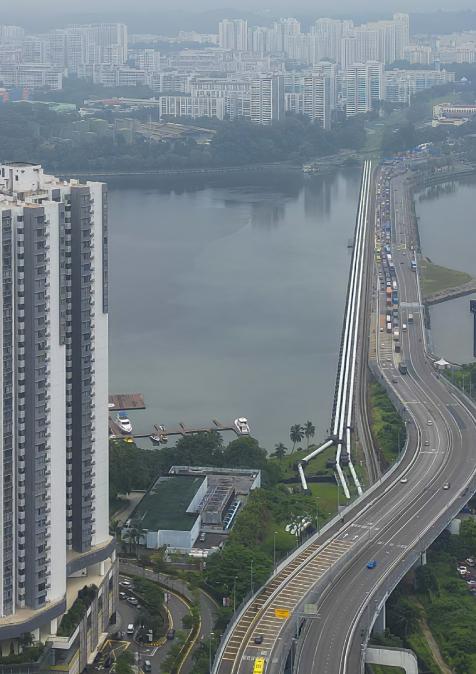Publications /
Policy Brief
Cette étude concerne l'économie de la Turquie entre 1960 et 2020. Sur cette longue période, deux indicateurs ont été privilégiés : le taux de croissance et le taux d'inflation, analysant leur évolution, mettant en évidence un « avant Erdogan » et un « après Erdogan ».
Un « avant Erdogan », entre 1960 et 2003 tout d'abord. Entre 1960 et 2003, les taux de croissance et les taux d'inflation sont très irréguliers, parfois négatifs pour le taux de croissance, mais pouvant aussi dépasser 100% pour le taux d'inflation. Un « après Erdogan », à partir de 2003 comme Premier ministre, puis à partir de 2014 comme président de la république. Cette période est marquée par une amélioration spectaculaire de l'économie du pays jusqu'en 2017, avec des taux de croissance plus réguliers, souvent compris entre 8 et 10%, et des taux d'inflation inférieurs en moyenne à 10%. A partir de 2018, la situation se dégrade dans le domaine de l'inflation, mais la croissance reste positive, malgré la pandémie de la Covid-19 » (I).
La seconde partie de l'étude est consacrée à l'économie turque sous la présidence Erdogan. Elle concerne, donc, l'économie turque à partir de 2014. Outre l'évolution du taux de croissance et du taux d'inflation, sont analysés l'évolution du taux de chômage, du taux d'endettement, du déficit budgétaire et du solde des comptes courants du pays sur la période. Leur analyse confirme globalement la tendance générale constatée à partir de 2013, mais mettent en évidence aussi une situation qui commence à se dégrader dès 2018, avant la pandémie, pour montrer ensuite une résilience certaine à la crise (II).
Cette période rappelle aussi que si la croissance est une condition nécessaire au développement, elle n'en est pas pour autant une condition suffisante. Dans le cadre de l'économie turque, cette croissance est le fait d'une politique totalement assumée du président Erdogan, celle de la faire reposer sur un soutien à l'économie à partir d'un crédit bon marché, quelles qu'en soient les conséquences sur l'inflation, l'emploi et le cours de la monnaie nationale. 2021 et 2022 vont être les années vérité de l'économie turque.









